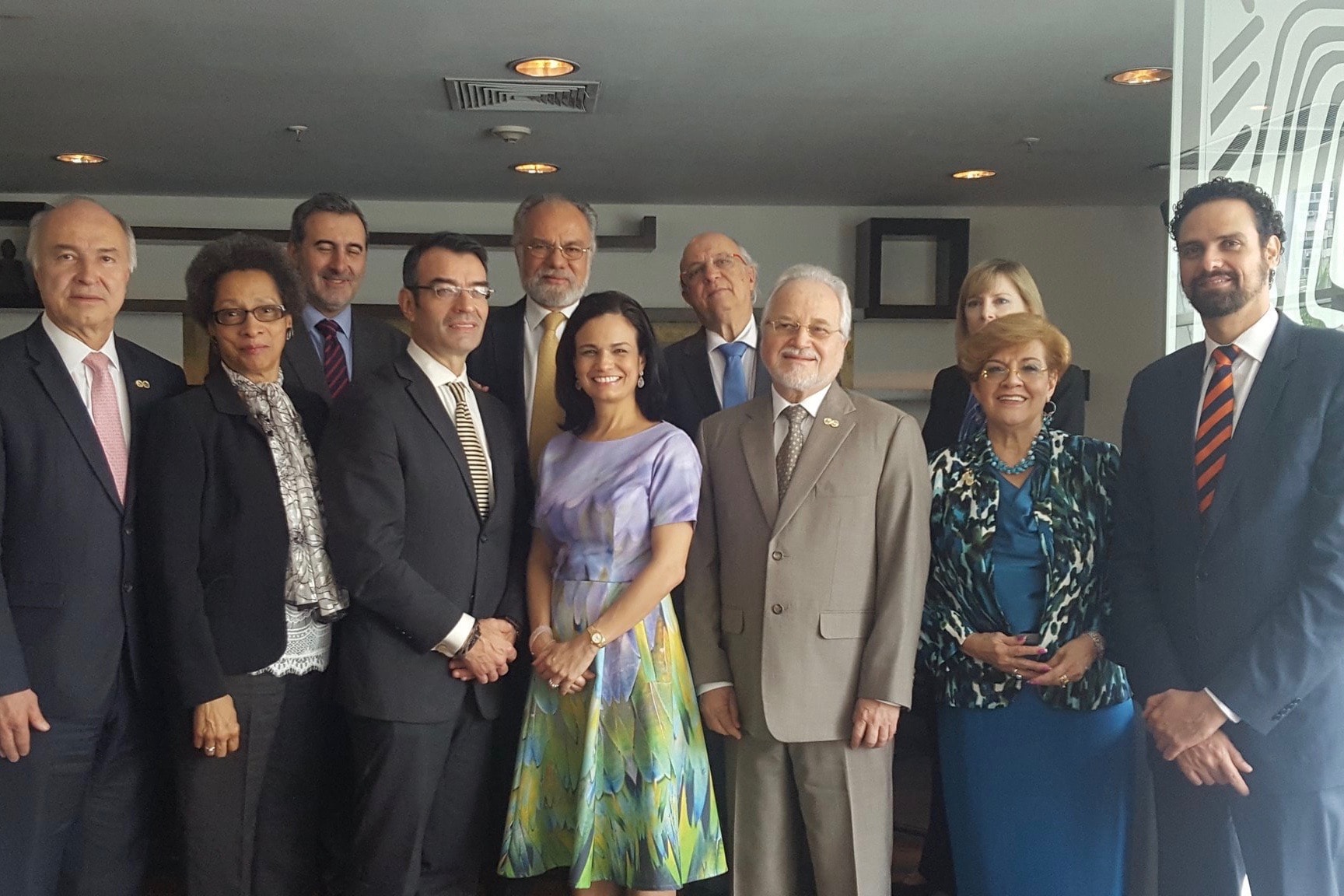As three IFEX members take their governments to task over free expression, we take a look at the main issues they'll be bringing up at the Inter-American Commission.
This week three IFEX members from Latin America are participating in the Inter-American Commission on Human Rights’ (IACHR) 159th Period of Sessions, taking place in Panama City from 29 November to 7 December. Fundamedios, based in Ecuador, the Sindicato de Periodistas del Paraguay (SPP), based in Paraguay, and Espacio Público, based in Venezuela, will all participate in hearings along with other civil society representatives on 2 December.
These hearings are a chance for civil society to inform the Commission of violations of fundamental human rights, including the right to freedom of expression. Based on the evidence provided, the Commission may make recommendations to individual states. In cases of non-compliance, cases can then be referred to the Inter-American Court of Human Rights. In light of the Commission’s recent financial crisis, those of us in the free expression community are pleased that the IACHR has resumed hearings and its integral role in protecting human rights in the Americas.
The 159th Period of Sessions marks the first time that three IFEX members will be heard by the Commission on the same day. Below are some of the key free expression issues that each organisation submitted ahead of the hearing, and which will be central to their presentations:
Fundamedios: Ecuador
• According to the organisation’s statistics, 2015 was the worst year on record for journalists in Ecuador. From January to December, Fundamedios recorded 377 media violations, making it the most violent year for attacks on free expression.
• Fundamedios noted the lack of transparency in the application of the restrictive Ley Orgánica de Comunicación by the country’s media regulator, Supercom, as contributing to a deterioration of the media landscape.
• The Supercom’s tendency to use and abuse the law to target certain outlets was evident in the number of fines and sanctions it levied against media outlets of all sizes.
• There is a generally hostile and stigmatising climate for the media in Ecuador that is perpetuated by officials high up in the government, including President Correa, who often discredits the media during his weekly Saturday TV programme.
• An increase in infringements on digital rights was also highlighted as contributing to a worsening of the free expression landscape.
SPP: Paraguay
• Between 1991 and today there have been 17 work-related murders of journalists in Paraguay, and 40% of those have taken place in the past three years. SPP has recently been working on the issue of pervasive impunity in the country, as no one has yet been held accountable for any of these 17 cases.
• The fact that an estimated 70% of the police force has ties to organised crime has limited investigations into crimes against journalists who may have reported on these issues, and also contributes to the high level of impunity.
• In recent years the concentration of media in the hands of a small number of people has worsened, and though Paraguay’s constitution does not allow for media monopolies, there are questions about the role of CONATEL, the body in charge of supervision and control of media concentration. CONATEL has been challenged for giving greater importance to economic efficiency in the telecommunications market, rather than favouring the plurality of perspectives necessary in a democratic society.
• Reforms made to the Ley de Telecomunicaciones in 2011 have restricted the power and reach of community radio stations, prohibited their use of advertising and other forms of financing that they require to do their work, and made it difficult for them to obtain licenses.
Espacio Público: Venezuela
• Between January and October of 2016, Espacio Público received direct reports from victims of 309 violations of freedom of expression, including physical violence, intimidation, aggression, censorship, verbal and judicial threats and legal restrictions on free expression. These figures represent a significant increase of 41.74% from the previous year.
• In 2016, as public mobilizations increased amid soaring food prices in the country, lack of access to food and goods, and deteriorating labour conditions, government crackdowns on protest also increased significantly, with
37% of violations of freedom of expression taking place during public protests.
• Accessing impartial information is a challenge in Venezuela. Critics have repeatedly accused state-run Venezolano de Televisión (which makes up about 26% of the television market in the country) of presenting programming that is clearly directed towards government sympathizers.
• State influence permeates the majority of television networks in the country, of which there are only three privately controlled channels and 15 financed by public funds.
Visit the IACHR website to learn more about the 159th Period of Sessions.
Cole Scigliano is the Programme Coordinator for IFEX’s Latin American & Caribbean alliance. Erin Woycik is the IFEX Section Editor for the Americas.
